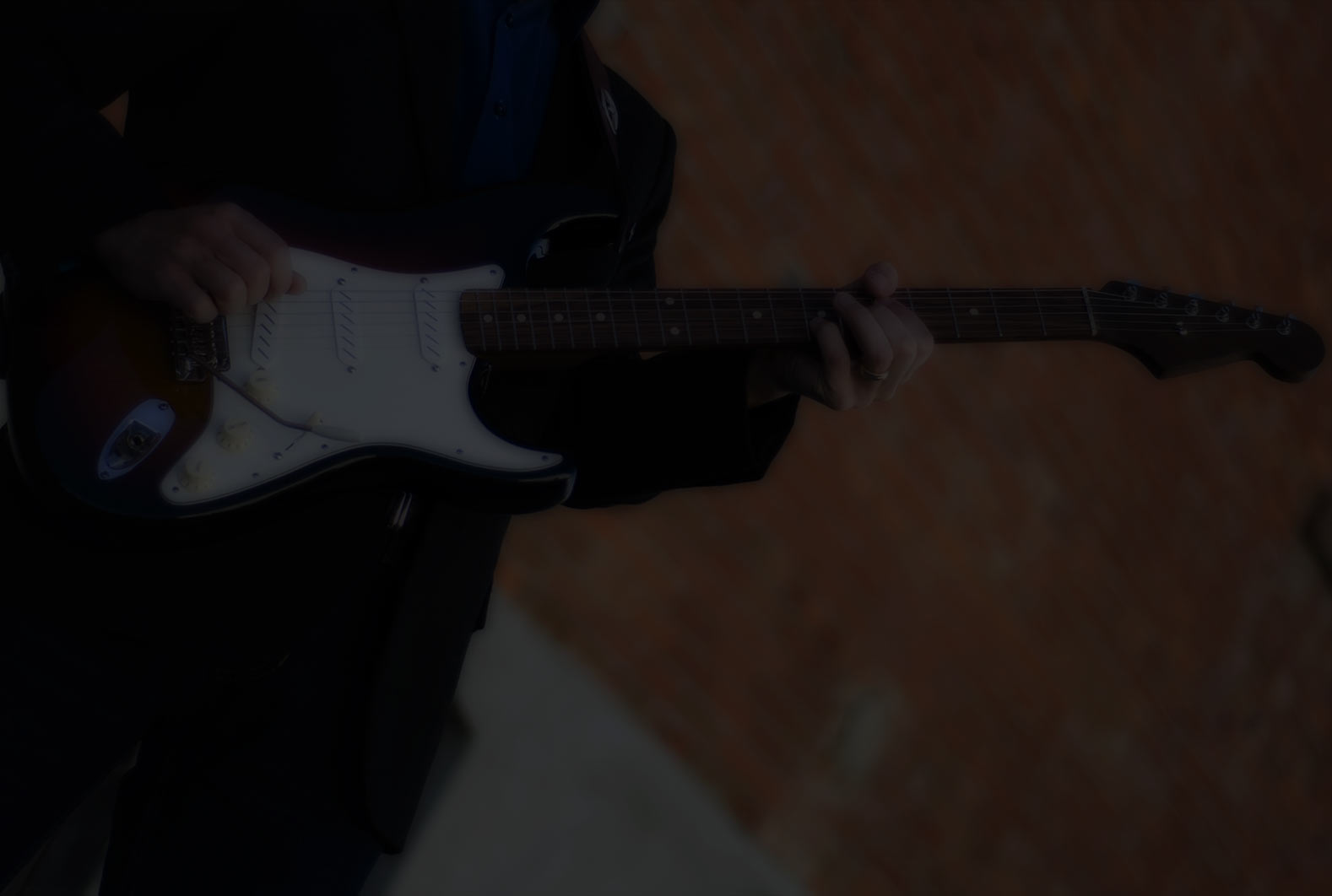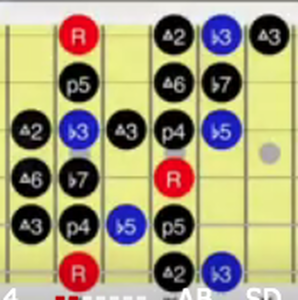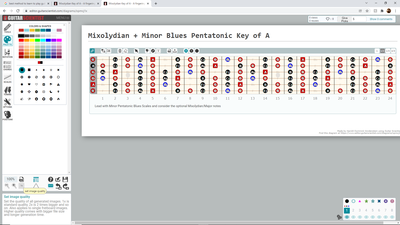I was just looking at the "Scales You Can Use" lesson. I wonder if it wouldn't be simpler to just show the notes that are not part of the scale.
That's a good question. Maybe you can expand on that? It's been a while since I made that course, but it's how I think about these notes. It's all about the intervals and the sound they make.
What do others think - is it unclear what I'm teaching in this course?
When I see a hybrid scale like this...
it suggests that I can play almost any note (except for the three that are not in the scale). I find it easier to visualize these scales separately and I like that you have coloured the notes of the blues scale that are not in the Mixolydian scale/mode. I suppose you could add a third colour for the notes that are in both scales but then there are the chord tones as well and I guess that would get a little too colourful!
BTW I was just referring to the scale diagrams. Your video explanation is very clear.
I guess there is more than one way to think about it. Whatever works best for you - go for it. 🙂
That's probably the best way to look at it. To me this hybrid scale just looks like a blend of the minor and major blues scales. If I hit a note that's not in the scale, I either think of it as a tension note or just bend it until it sounds good. 😉 You can play pretty much any notes you like as long as you land on a chord tone.
In the end the idea is to come up with a melodic sounding phrase which is what separates your playing from others who just seem to string together a series of licks.
@emoshurchak " If I hit a note that's not in the scale, I either think of it as a tension note or just bend it until it sounds good. "
That's what I do. Robert's scale diagram puts them altogether but I think of them as separate scales...Minor Pentatonic...Major Pentatonic...Mixolydian...Blues Scale....
Robert's lesson taught me that it's all good...he showed me the legal real estate on which I could play and yet my ears are the ones that move my bends to the correct pitch needed whether it is on purpose or by mistake....well said. What works for me is that I lead with Minor Pentatonic Blues Scale and allow notes from the others to influence the music. I love the blues because it is so forgiving and creative. Thank you Robert for this lesson. I have not seen another instructor offer this information.
Play an unintended note outside of the scale once and it's a mistake. Play it a second time with purpose and it's part of the song!
The way I see this stuff on the fretboard is in the form of INTERVALS. That's what it's all about to me. Many scales share the same intervals, so it's for me much easier to not think about the scale(s), but instead the intervals I'm playing. For example, instead of thinking of the Dorian or Minor Pentatonic when I'm playing a minor 3rd or a 5th or a minor 7th, I just think of those notes as intervals - relating them to the chords I'm playing over and going for the sound this creates.
Hmmmmm......have to work on that....a LOt! IN the meantime your hybrid scale course inspired me to put together a 24 scale version of the hybrid for key of A/A7 using a cool website I found at GuitarScientist.com here it is....hope I can post it.....this is what I use when I play..... Thanks for the inspiration, Robert, as I didn't know I was doing this....using Mixolydian, Major, Minor Blues Pentatonic all together. I lead with the Blues Pentatonic scale and use bending and passing note playing to get all these note....it makes sense to me now....what fun!
The way I see this stuff on the fretboard is in the form of INTERVALS. That's what it's all about to me. Many scales share the same intervals, so it's for me much easier to not think about the scale(s), but instead the intervals I'm playing. For example, instead of thinking of the Dorian or Minor Pentatonic when I'm playing a minor 3rd or a 5th or a minor 7th, I just think of those notes as intervals - relating them to the chords I'm playing over and going for the sound this creates.
Thanks to your lessons, Robert, meanwhile I’ve come to really appreciate looking also at chord shapes « in the form of INTERVALS ».
When I have, for example, a D13 with the root on the B string, I know now that the b7 is on the A string same fret and the 3rd and 13th are on the next higher fret (D string resp. G string).
It really makes sense to me not memorizing the notes also regarding to an easy transfer to other shapes.
Furthermore, I instantly know where the beautiful sounding notes of the chord (3rd, b7, 13th) are located.
Birgit








